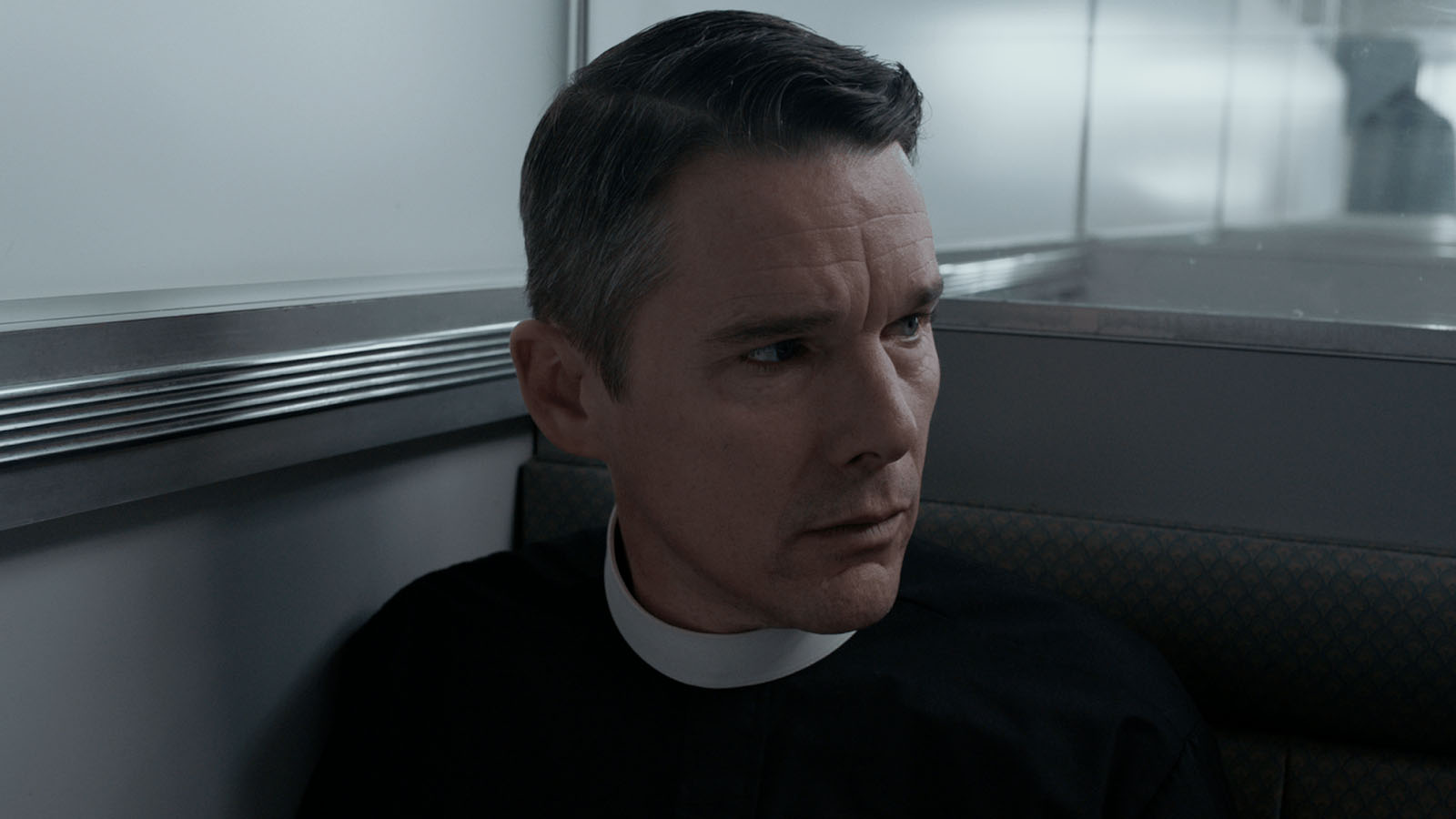Awards Season Is Underway

The annual ritual, the great sorting, is underway. The week began with Monday night’s presentation of the Gotham Awards, and it wraps with last night’s announcement of the winners of the New York Film Critics Circle Awards. While there’ll never be a settled-upon consensus as to which films really are the best of 2018, we’re beginning to see a few favorites rise to the top. First Reformed, for example. Both the Gothams and the NYFCC have selected Paul Schrader’s screenplay and Ethan Hawke’s lead performance as the best in their respective categories. Bo Burnham’s Eighth Grade is another winner for both organizations, named best first film by the NYFCC and winning the breakthrough director and breakthrough actor awards at the Gothams. Elsie Fisher’s performance as a young teen is “so visceral and unforced that you might find yourself transported back in time” to that hideous year in your own life, wrote Manohla Dargis in the New York Times this summer.
The awards presented by the NYFCC, founded in 1935, are among the most prestigious of any given by a critics’ group, and this year, they’ve gone all in for Alfonso Cuarón’s Roma: best film, director, and cinematography. Cuarón shot the film, based on his memories of growing up in Mexico City’s Colonia Roma neighborhood, himself. Calling Roma “the Lawrence of Arabia of intimate, cluttered family dramas,” Amy Taubin, writing for Artforum, is the latest critic urging us to see this one in a theater before it begins streaming on Netflix in a couple of weeks.
The NYFCC has named Regina Hall (Support the Girls) best actress and Regina King (If Beale Street Could Talk) best supporting actress, while Richard E. Grant takes best supporting actor for his winning turn in Can You Ever Forgive Me? Bing Liu’s Minding the Gap, a chronicle of growing up with his friends in Rockford, Illinois, wins best nonfiction film. The NYT’s A. O. Scott calls it “a rich, devastating essay on race, class, and manhood in twenty-first-century America.” Pawel Pawlikowski’s Cold War, a torrid romance loosely based (and dedicated to) his parents, is the NYFCC’s pick for best foreign language film. And Spider-Man: Into the Spider-Verse, which won’t even open until December 14, wins best animated film. The NYFCC has also announced two special awards, one for the Kino Classics box set Pioneers: First Women Filmmakers and the other for David Schwartz, who will soon be stepping down as chief film curator at the Museum of the Moving Image after thirty-three years.
At the Gothams, Chloé Zhao’s The Rider surprised many awards race watchers by beating out Yorgos Lanthimos’s The Favourite, First Reformed, Barry Jenkins’s If Beale Street Could Talk, and Josephine Decker’s Madeline’s Madeline to win best feature. Though The Rider, a moving portrait of rodeo riders in South Dakota, premiered last year in the Directors’ Fortnight program at Cannes, it didn’t open in the U.S. until earlier this year. Writing for RogerEbert.com, Godfrey Cheshire found that the film marks Zhao “as one of the world’s most important young directors. Yet what really distinguishes her work here is something beyond great filmmaking chops: a vision that is deeply humanistic, founded on a compassionate realism that honors the heartfelt struggles of all the creatures it encounters.”
RaMell Ross’s debut feature, Hale County This Morning, This Evening, which tracks the lives of two young black men in the Deep South, won best documentary. In September, 4Columns film editor Melissa Anderson wrote: “The syntax of ‘how we’ve come to be seen’—first-person plural pronoun, passive voice—lays bare Ross’s quest: to expand or rewrite the vitiated visual language long used to document black people, especially the poor and the working class.” Morgan Neville’s Won’t You Be My Neighbor?, which tells the story of Fred Rogers, was also nominated but won the audience award instead.
A special jury award for Olivia Colman, Emma Stone, and Rachel Weisz for their performances in The Favourite—as well as a tribute to Weisz—were previously announced, but Toni Collette has taken the straight-up best actress honor for her harrowing turn in Ari Aster’s Hereditary. Phoebe Waller-Bridge’s Killing Eve, which centers on the mutual fascination between a spy and an assassin, has been named breakthrough series (long form), while Chanelle Aponte Pearson and Rae Leone Allen’s 195 Lewis, a dramedy set in in the heart of Bed-Stuy, Brooklyn, has won the short form breakthrough series award.
In other year-end sorting news:
- In 1930, the National Board of Review, founded in 1909, became the first critics’ organization to present annual awards. This year, the NBR’s hundred-plus members have voted up a round that favors Peter Farrelly’s Green Book, starring Viggo Mortensen as a sort of bodyguard who escorts Mahershala Ali’s classical pianist through the Deep South of the 1960s, and Bradley Cooper’s A Star Is Born with Lady Gaga.
- The European Film Academy has announced that it will pay tribute to Greek-French film director and producer Costa-Gavras (Z,Missing), presenting him with the the Honorary Award of the EFA President and Board during the thirty-first European Film Awards in Seville on December 15.
- Contributors to Cargo, critic Jordan Cronk, and IndieWire’s Eric Kohn have all posted their best-of-2018 lists.
Meantime, looking ahead to 2019, Variety has unveiled its list of ten directors to watch.
For news and items of interest throughout the day, every day, follow @CriterionDaily.



